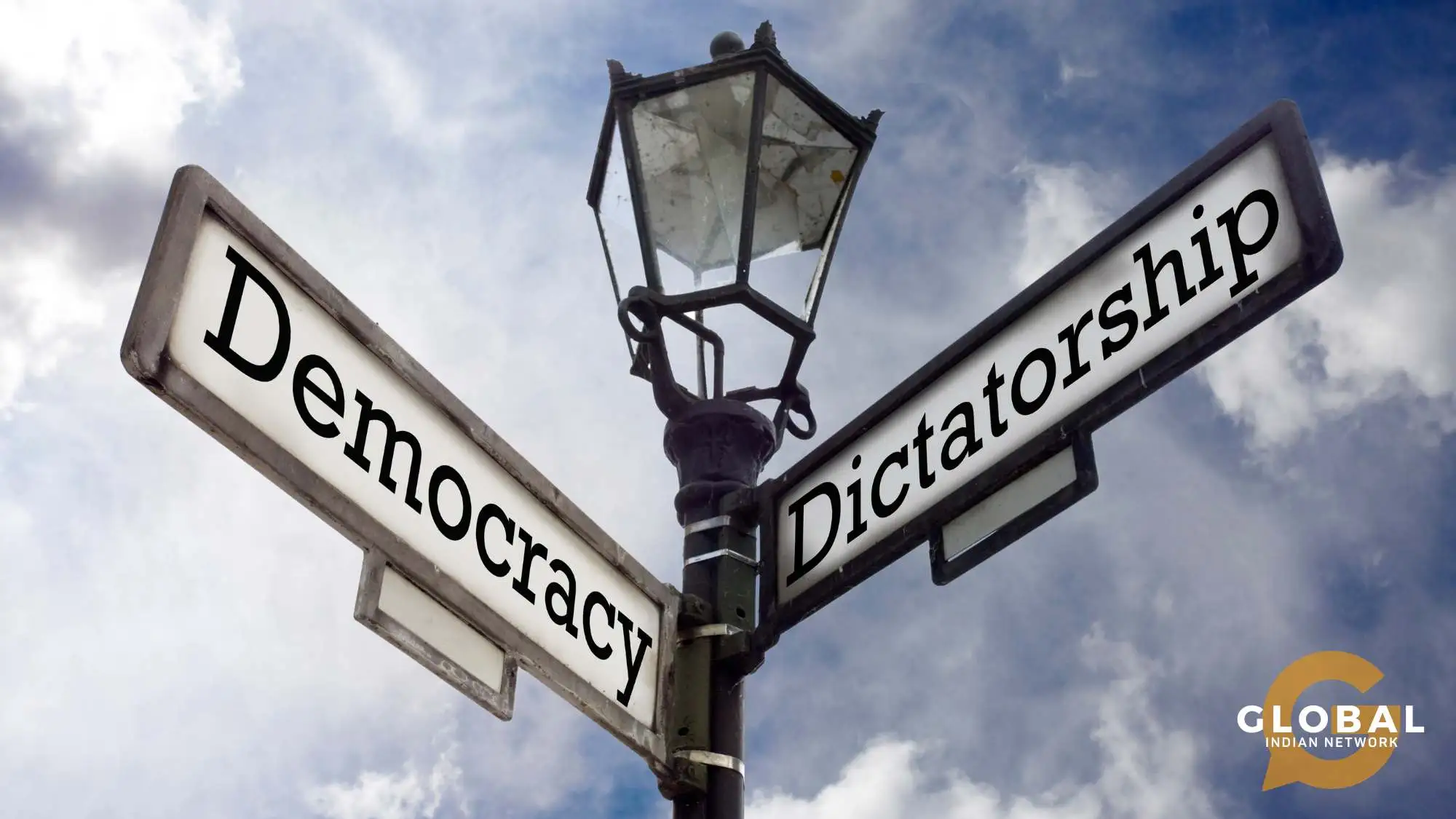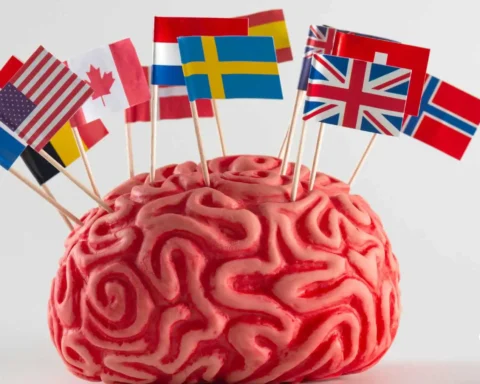Democracy and dictatorship represent two vastly contrasting governance paradigms that have shaped nations' political landscapes throughout history. While democracy champions the principles of popular sovereignty and individual rights, dictatorship embodies concentrated power and authoritarian control.
Two systems diverge on fundamental principles, from the way leaders are chosen to the extent of citizen participation and the protection of civil liberties. This blog explores the key differences between democracy and dictatorship, shedding light on their distinct characteristics, implications, and consequences for society.
Table of Contents
Selection of Leaders
In democratic governments, the selection of leaders hinges on a distinct set of principles and processes that set them apart from other forms of government. Unlike autocracies or dictatorships, where leadership often rests with a single person, democracies operate on a foundation of pluralism and popular representation.
One of the defining features of democratic countries is the presence of political parties. These parties serve as conduits for citizens to express their diverse political ideologies and preferences. Through fair and periodic elections, individuals have the opportunity to choose their leaders. These elections are a cornerstone of democratic governance, ensuring that leadership transitions are peaceful and reflective of the people's will.
In contrast to autocracies, where a single person can hold unchecked power, democracies distribute power more broadly. Elected leaders are subject to checks and balances, which help safeguard the fundamental rights of citizens. These rights encompass freedom of speech, assembly, and the press, among others, and serve as pillars of democratic societies.
Democratic governments, therefore, stand as a stark contrast to other forms of government where power is concentrated in the hands of a single individual or a small elite. Instead, they prioritize the collective will of the people, where leaders are chosen through fair elections and fundamental rights are protected, fostering an environment of pluralism, accountability, and representation.
Citizen Participation
Citizen participation is a fundamental pillar of democracy, setting it apart from other forms of government, such as dictatorship. In democratic nations like India, this active engagement of citizens in governance is facilitated by the rule of law and a specific form of governance.
In a democracy, the head of government is typically elected through fair and open elections, allowing citizens to have a say in the selection of their leaders. This stands in stark contrast to dictatorship governments, where the head of government often seizes power through non-democratic means and maintains control without the consent of the governed.
The rule of law is crucial in democratic governance, ensuring that legal constraints bind leaders and are accountable for their actions. Democratic nations prioritize the protection of individual rights and liberties, allowing citizens to freely express their opinions, assemble, and participate in political processes. This type of government encourages citizen engagement and fosters a sense of ownership over the decisions that affect their lives.
Comparatively, the rule of law is often disregarded in dictatorships, and citizens may have limited opportunities to participate in the political process. The head of government in a dictatorship tends to wield unchecked power, often suppressing dissent and opposition.
Indian democracy serves as an example of a vibrant and diverse democratic nation where citizens actively participate in governance through elections, political parties, and civic engagement. This form of governance, characterized by citizen participation, transparency, and the rule of law, underscores the stark contrast between democratic and dictatorship governments worldwide.
Protection of Civil Liberties
The protection of civil liberties is a crucial aspect that distinguishes between different types of government, notably democracy and dictatorship. These two forms of government have starkly contrasting approaches to safeguarding individual liberty and the distribution of political power.
In a democracy, political power is dispersed among various branches of government, subject to checks and balances. Frequent elections are a hallmark of democratic governance, allowing citizens to choose their leaders and hold them accountable. This dispersal of power ensures that no single entity holds absolute or ultimate power. Individual liberty is highly prioritized, with a robust legal framework and constitution designed to protect citizens' rights to free speech, assembly, and privacy. Democratic governments strive to create an environment where these fundamental freedoms are upheld, and citizens can express their opinions without fear of repression.
Conversely, in a dictatorship, political power is concentrated in the hands of a single individual or a small elite. The ruler holds absolute power, often unchecked by democratic institutions or legal constraints. If they occur, elections are typically controlled or manipulated to maintain the regime's grip on power. In such political regimes, individual liberty is often compromised, with dissent suppressed, and civil liberties curtailed to maintain the status quo.
The stark contrast between democracy and dictatorship lies in their treatment of civil liberties. Democracies emphasize the protection of individual liberty as a fundamental value, while dictatorships tend to prioritize the regime's stability and control over the populace. This fundamental difference in approach to civil liberties underscores the broader distinctions between these two types of government, making them crucial factors in shaping the political landscape of a nation.
Implications for Society
The implications of the type of government a society adopts, whether it is a democracy or a dictatorship, have far-reaching consequences that impact various facets of social life. These implications extend beyond politics and governance, influencing a society's overall well-being and development.
1. Individual Rights and Freedoms: In a democracy, where individual rights and freedoms are typically protected, citizens enjoy the liberty to express themselves, participate in civic activities, and live without fear of arbitrary repression. In contrast, these rights are often curtailed in a dictatorship, leading to limited personal freedoms and restricted civic engagement. The implications are stark: democracies tend to foster more vibrant and diverse societies where individual expression and creativity can flourish.
2. Economic Prosperity: Democracy is often associated with economic development. Open and transparent systems of governance can attract foreign investments, promote entrepreneurship, and create a conducive environment for innovation and economic growth. In contrast, dictatorships may prioritize political stability over economic progress, potentially stifling economic opportunities and limiting prosperity.
3. Social Cohesion: Democracy encourages dialogue, negotiation, and consensus-building among different segments of society. This can contribute to greater social cohesion and inclusivity, as diverse voices are considered in decision-making. On the other hand, dictatorship may suppress dissent and create divisions within society, leading to potential unrest and instability.
4. Access to Basic Services: Democratic governments are often more accountable to their citizens, leading to better provision of basic services such as healthcare, education, and infrastructure. In contrast, dictatorships may divert resources towards maintaining political control, resulting in unequal access to essential services.
5. Human Rights and Rule of Law: Democracy tends to be associated with a stronger commitment to human rights and the rule of law. Dictatorships may disregard these principles, leading to a higher likelihood of human rights abuses, including censorship, repression, and violence.
6. International Relations: The type of government a country has can significantly affect its relationships with other nations. Democracies tend to have stronger diplomatic ties with fellow democracies and may be more trusted in international relations. Dictatorships may face isolation and sanctions, impacting their global standing.
7. Political Stability: Dictatorships may provide a semblance of political stability in the short term as they suppress dissent and opposition. However, this stability can be brittle and prone to sudden upheavals. Democracies, on the other hand, often achieve more durable political stability through peaceful transitions of power and the rule of law.
Conclusion
The stark contrast between democracy and dictatorship serves as a critical axis upon which the fate of nations revolves. These two forms of governance represent fundamentally divergent approaches to political power, individual liberty, and societal well-being.
The choice between democracy and dictatorship is not merely a political decision but a moral and societal one. It shapes the very fabric of a nation, determining whether it thrives on the principles of openness, participation, and liberty or succumbs to the weight of authoritarianism. As history has repeatedly shown, the path a society chooses—towards democracy or dictatorship—can have profound and enduring consequences for generations to come. It is a choice that should be made with utmost consideration for the values, freedoms, and aspirations of the people it governs.
FAQs
What is the difference between a dictatorship and a democracy?
A dictatorship is characterized by centralized, autocratic power held by a single individual or a small group, often with limited political freedoms and citizen participation, while a democracy is a form of government where power is dispersed among elected representatives, with an emphasis on individual rights, free elections, and citizen engagement in the decision-making process.
What is the meaning of democratic dictatorship?
The term "democratic dictatorship" is generally not used in political theory or practice, as it combines contradictory concepts—democracy, which implies popular participation and checks on power, with dictatorship, which suggests centralized, authoritarian control—making it a paradoxical and ambiguous term.
What are the 3 types of democracy?
Three types of democracy are direct democracy, representative democracy, and participatory democracy, each differing in the extent of citizen involvement in the decision-making process.
What is the difference between a democracy and a dictatorship quizlet?
The key difference between a democracy and a dictatorship is that in a democracy, political power is distributed among elected representatives, allowing for citizen participation and protection of individual rights, whereas in a dictatorship, power is concentrated in the hands of a single person or a small group, often leading to limited political freedoms and authoritarian control.











[…] right to voice opinions on politics free of restrictions. While many regard it as the lifeblood of democracy, questions have been raised about its ethicality, considering its potential boons and […]